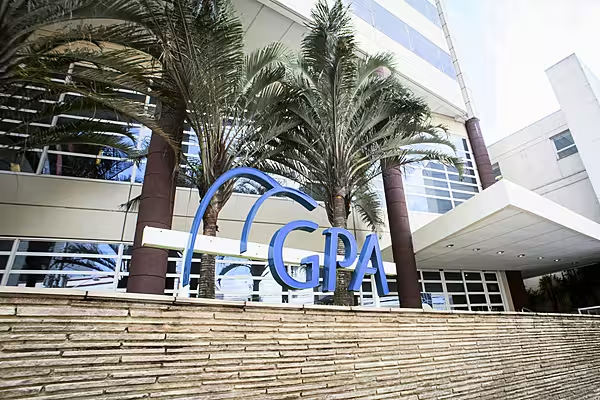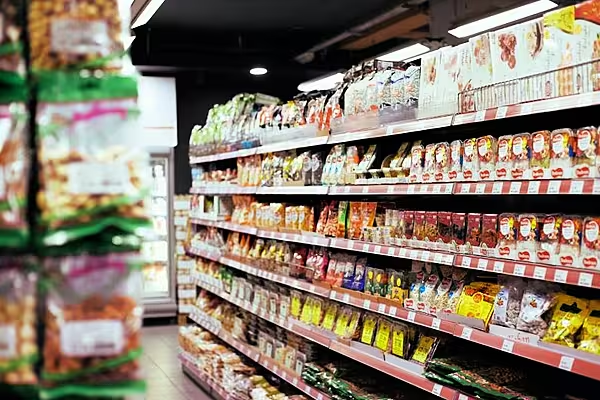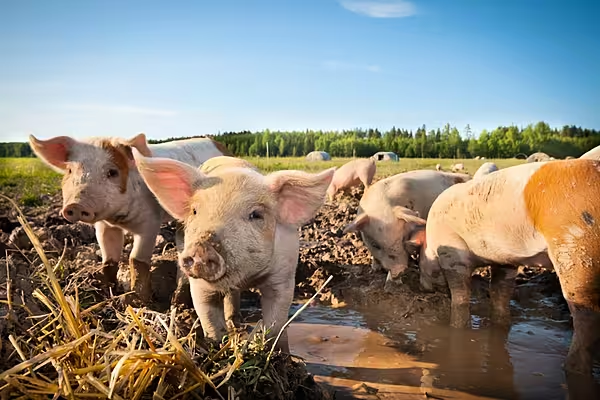Procter & Gamble, the world’s largest consumer-products maker, has said second-quarter profit fell 31 per cent as the stronger dollar ate away at sales and earnings from its international units.
Net income dropped to $2.37 billion, or 82 cents a share, from $3.43 billion, or $1.18, a year earlier, Cincinnati-based P&G said Tuesday in a statement. Excluding some items, profit was $1.06 a share. The average of 21 analysts’ estimates compiled by Bloomberg was $1.13.
CEO A.G. Lafley has tried to combat a currency-driven sales slowdown in emerging markets by adding more premium-priced products to P&G’s domestic offerings. The strategy wasn’t enough to keep revenue growing in the second quarter, as foreign-exchange rate pressure that Lafley called “unprecedented” reduced sales by 5 percentage points.
“Virtually every currency in the world devalued versus the US dollar, with the Russian ruble leading the way,” Lafley said in the statement. While the company continues to transform itself to focus more closely on the household and personal-care businesses, “the considerable business portfolio, product innovation and productivity progress was not enough to overcome foreign exchange.”
Second-quarter sales fell 4.4 per cent to $20.2 billion, trailing analysts’ $20.7 billion projection.
The shares dropped 2.5 per cent to $87.30 at 7:39 a.m. in New York. P&G rose 12 per cent last year, compared with an 11 per cent gain for the Standard & Poor’s 500 Index.
P&G said currency effects will continue to be a drag in the current fiscal year. They’ll reduce sales by 5 per cent, leading to a decline of as much as 4 per cent from a year earlier. The company repeated its forecast that sales excluding currencies and the effects of acquisitions and divestitures would rise at a low- to mid-single-digit percentage rate.
Foreign exchange will cut net earnings by 12 per cent, or about $1.4 billion after taxes. P&G maintained its forecast that currency-neutral core earnings per share, which excludes items such as restructuring and impairment charges, will grow by a double-digit percentage.
While currencies will weigh on earnings and sales, Lafley said P&G is making progress and will boost market share for some of its category-leading brands.
P&G has gained share in detergent, where its Tide Pods dominate the single-dose category, Erin Lash, an analyst at Morningstar Inc, said in an interview before the results were released.
The company also has taken some business from Kimberly-Clark Corp. in the adult-incontinence market, which it re-entered last year. P&G’s Always Discreet brand has fared “pretty well” and has picked up some share from the Poise brand, Kimberly-Clark CEO Tom Falk said on the company’s 23 January earnings call. Kimberly-Clark also said it lost share in North American diapers in the last quarter.
Another rival, Unilever, also has lost ground in the U.S. Deodorant and shampoo sales in the US at Unilever declined in the fourth quarter after nine months of gains, according to Nielsen data cited by Exane BNP Paribas.
Competitors in both categories were stepping up promotions in the US, with one deodorant seller discounting so deeply that it feels as if they’re “giving away their products,” Unilever CEO Paul Polman said on a 20 January conference call.
However, P&G’s beauty business “continues to struggle,” said Lash, who’s based in Chicago and has a hold recommendation on the shares.
“It’s a highly competitive business and one that you’re seeing a lot of players look to build out their presence in,” Lash said.
Last week, P&G added beauty to the grooming and health portfolio of David Taylor, making him responsible for about half of the company’s business and positioning him as a frontrunner to succeed Lafley.
“Getting a fresh perspective for a business that’s been struggling for a long time is not necessarily a bad thing,” Lash said.
P&G and other consumer companies are contending with slowing economies that have boosted the US dollar’s value, making their goods more expensive and eroding sales and profit. That’s especially true in Venezuela, where falling oil prices have heightened the bolivar’s volatility. About two-thirds of P&G’s sales were outside of its home market last year.
The currency effect also hurt Kimberly-Clark, which last week posted sales and profit lower that trailed analysts’ estimates. The Dallas-based maker of Huggies diapers switched to a floating exchange rate of about 50 bolivars to the dollar from the official exchange rate of 6.3. The revaluation resulted in a $462 million charge in the quarter ended 31 December.
Bloomberg News edited by ESM














